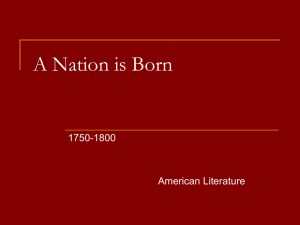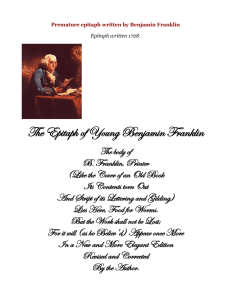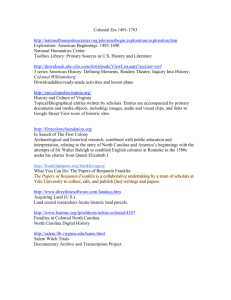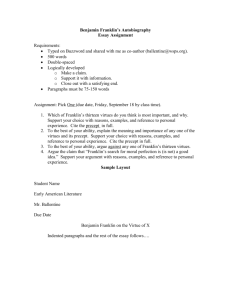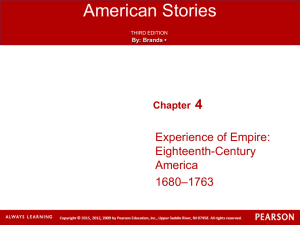Franklin and the New Imperial System
advertisement
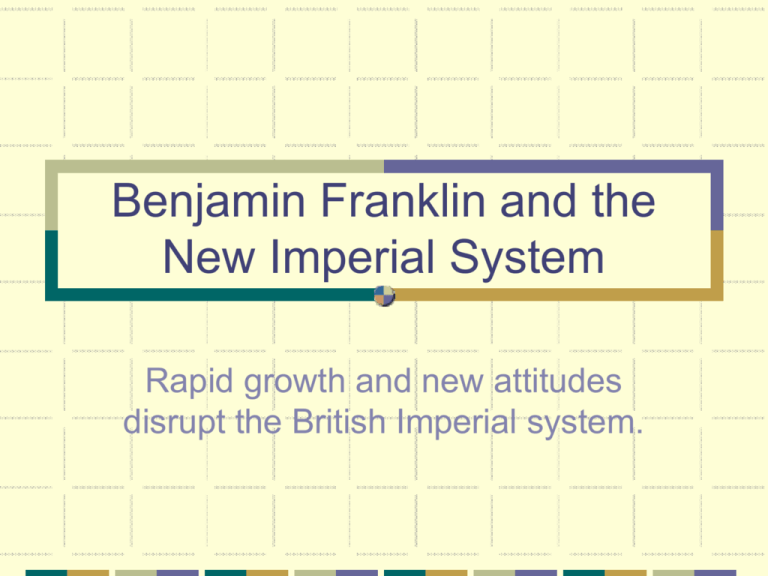
Benjamin Franklin and the New Imperial System Rapid growth and new attitudes disrupt the British Imperial system. Growth and It’s Consequences Economic and demographic change. Mercantilist trade policy vs. trading reality. Consequences of a captive colonial economy: monetary shortage and slow growth. Demographic expansion and Imperial policy. Land and the Seven Years’ War. Colonial expansion as a cause of the war. William Pitt and continental vs. colonial strategy. Debt and the problems of the Old Imperial system. The Proclamation of 1763. The Colonial Arrangement in 1770 Benjamin Franklin Opportunity and young Franklin’s “American” character. Franklin’s Autobiography and the nature of education and opportunity in the colonies. The man of business and science. Franklin the printer: how to succeed by trying. Franklin the scientist: the Enlightenment and it’s influence on American attitudes. Franklin in the new American politics. Pennsylvania as a political proving ground. The Albany Congress and the idea of Union. Franklin the colonial agent: imperial politics in action. The New Imperial System and the Coming of the Revolution Trade and the control of the Empire. Customs enforcement, smuggling and George Grenville . The Sugar Act and its new enforcement ideas. Imperial vs. colonial ideas of rights. The Stamp Act: taxes as right or “freely given.” The Townsend Duties, boycott, and the “Boston Massacre.” The Tea Act and a “party” in Boston harbor. The Intolerable Acts and the formation of the Continental Congress.

